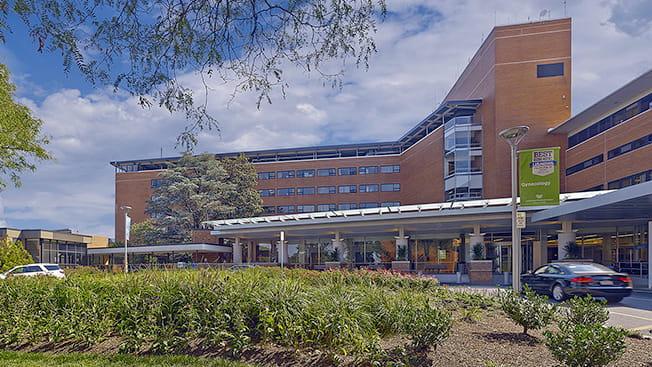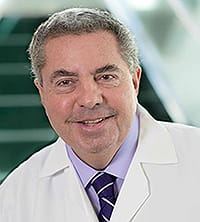Main Line Health, Mayo researchers find natural product may prevent sudden cardiac death from rare inherited syndromes


Wynnewood, PA — In 2020, a team of cardiovascular experts from the Lankenau Institute for Medical Research (LIMR), part of Main Line Health, used experimental models to discover that a natural product found in plants including safflower holds promise for treating a pair of hereditary sudden cardiac death syndromes.
Now, collaborators from LIMR and Mayo Clinic have provided clinical evidence in a new study that acacetin may be the new agent for which cardiologists have been searching. Results were published earlier this month in the journal Circulation: Genomic and Precision Medicine.
“These findings give us optimism that our pioneering work at LIMR will translate into results that save patient lives,” said Charles Antzelevitch, PhD, executive director of LIMR’s Cardiovascular Research Program. “Further studies are clearly warranted to better understand the mechanisms by which acacetin can be beneficial in the treatment of cardiac arrhythmias.”
Antzelevitch and Mayo’s Michael J. Ackerman, MD, PhD, served as senior authors. Héctor Barajas-Martínez, PhD, a LIMR research professor, was a coauthor.
In the study, LIMR and Mayo investigators demonstrated that acacetin exerts its beneficial effects by altering ion channel activity within the cells of the heart.
Brugada syndrome and early repolarization syndrome fall under the umbrella of J-wave syndromes. They have overlapping cellular and genetic features characterized by irregular heart rhythms. Brugada syndrome affects about 5 of every 10,000 people worldwide. People with it can often die in their sleep. Early repolarization is a common finding in electrocardiograms, but recent studies show the usually benign condition can lead to sudden cardiac death secondary to development of cardiac arrhythmias.
J-wave syndromes have been the focus of increasing interest in the cardiology community over the last quarter-century. Antzelevitch and his colleagues have pioneered studies focused on the cellular and genetic basis for these life-threatening syndromes over that period.
The new study focused on a Brugada syndrome patient with a mutation in the KCND3 gene. Mayo performed testing with induced pluripotent stem cells, which are derived from skin or blood cells that have been reprogrammed to differentiate into cardiomyocytes, cells responsible for the contracting force in the heart.
Acacetin is a compound distributed in numerous types of plant pigments and is responsible for many of the colors in nature. The research teams believe it may be superior to quinidine, which is one of the current pharmaceutical options for treatment of the J-wave syndromes.
Acacetin is also considered an attractive therapeutic target to treat inflammatory and immunological disorders.
About Lankenau Institute for Medical Research
Lankenau Institute for Medical Research (LIMR) is a nonprofit biomedical research institute located on the campus of Lankenau Medical Center and is part of Main Line Health. Founded in 1927, LIMR's mission is to improve human health and well-being. Using its ACAPRENEURIALTM model that integrates academic and entrepreneurial approaches, faculty and staff are devoted to advancing innovative new strategies to address formidable medical challenges including cancer, cardiovascular disease, tissue regeneration, gastrointestinal disorders and autoimmune diseases such as diabetes and arthritis. LIMR's principal investigators conduct basic, preclinical and clinical research, using their findings to explore ways to improve disease detection, diagnosis, treatment and prevention. They are committed to extending the boundaries of human health through technology transfer and training of the next generation of scientists and physicians.
About Main Line Health
Founded in 1985, Main Line Health is a not-for-profit health system serving Philadelphia and its suburbs. Main Line Health's commitment — to deliver safe, high-quality, equitable and affordable care for treating and curing disease, playing an important role in prevention and disease management, as well as training physicians and other health care providers — reflects our intent to be the region's premier choice for clinical care, research, and education. A team of more than 13,000 employees and over 3,500 employed and independent physicians and advanced practice providers care for patients throughout Main Line Health.
At Main Line Health's core are four of the region's most respected acute care hospitals — Lankenau Medical Center, Bryn Mawr Hospital, Paoli Hospital and Riddle Hospital — as well as one of the nation's premier facilities for rehabilitative medicine, Bryn Mawr Rehab Hospital.
Main Line Health also includes Mirmont Treatment Center for drug and alcohol recovery; Main Line Health HomeCare & Hospice, which includes skilled home health care, hospice and home infusion services; Main Line Health Centers, primary and specialty care, lab and radiology, and other outpatient services located in Broomall, Collegeville, Concordville, Exton, King of Prussia and Newtown Square; Lankenau Institute for Medical Research, a biomedical research organization; and Main Line HealthCare, one of the region's largest multispecialty physician networks.
Main Line Health is the recipient of numerous awards for quality care and service, including the prestigious American Hospital Association Quest for Quality Prize, highest tier ratings from the Centers for Medicare & Medicaid Services (CMS) for Overall Hospital Quality and systemwide recognition in the 2023-2024 U.S. News & World Report Best Hospitals rankings. Main Line Health is committed to creating an environment of diversity, respect, equity and inclusion, has proudly received awards in this area and has embraced the American Hospital Association's #123forEquity Pledge to Act to eliminate disparities in care. We are dedicated to advancing patient-centered care, education and research to help patients stay healthy and live their best lives.
For more information, visit mainlinehealth.org and connect with us on social media:
LinkedIn: www.linkedin.com/company/main-line-health
Facebook: www.facebook.com/mainlinehealth
X (formerly known as Twitter): www.twitter.com/mainlinehealth
Instagram: www.instagram.com/mainlinehealth